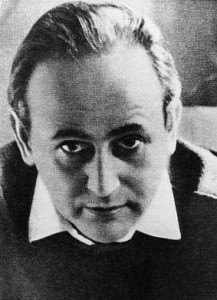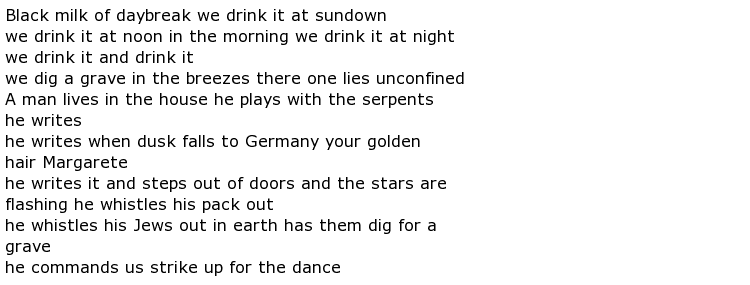 From Jewish Romanian descent, poet and writer Paul Celan was born in 1920 in Cernauti (now in what we call the Ukraine). He grew up to learn Hebrew and was brought up speaking German because of his mother’s love of German literature and was fond of writing poetry from a very early age, often in secret.
From Jewish Romanian descent, poet and writer Paul Celan was born in 1920 in Cernauti (now in what we call the Ukraine). He grew up to learn Hebrew and was brought up speaking German because of his mother’s love of German literature and was fond of writing poetry from a very early age, often in secret.
In 1938, Paul Celan moved to France to study to become a doctor but with the rise of World War II he returned to Romania a year later. It was only a short reprieve and the Germans invaded his home country in 1941. After periods of forced labor, Celan tried to convince his parents to escape abroad but while he was away for a short while they were taken to a camp and, shortly after, perished there. His father died from tuberculosis and his mother was shot. Paul Celan himself was taken to a work camp and it was almost a year later before he learned of the exact fate of his parents.
He survived until the Russians forced their way into the country and returned for a while to his home town where he worked as a mental health nurse. In 1945 he made his way to Bucharest and became popular in Jewish literary circles, both with translations of existing works and his own poetry which he wrote under an assumed name. One of his early works was Todesfuge and is still seen as one of the most powerful descriptions of life in a Nazi death camp.
With the rise of the communist regime and the beginnings of the Cold War, Paul Celan made his way to Vienna and then, a year later in 1948, to Paris where he published his first collection, Sand from the Urns. In 1951 he met Gisele de la Strange, they married, and four years later Celan was made a French citizen.
Throughout his work, the effect of the death of his parents and the dark force of The Holocaust can clearly be seen, and Celan often admitted that, to cope with the pain, he had nowhere to go but retreat into language. Some have suggested that his prose in later years became ever more cryptic and difficult to understand and that he was, in fact, trying to disassemble the German language. This fracturing of the language is more readily seen in his poem Death Fugue which endeavors to capture the full horror of the concentration camps.

Throughout his life he suffered from bouts of debilitating depression and was often difficult to live with. In 1959 he took up a post as German reader at the University of Paris. International fame came to him in the 60s but did not bring happiness. He published a further six books of poetry and won the Georg Buchner Prize.
Paul Celan was one of the most influential poets of the late 20th Century, a man at war with his own language at what it represented at the time. He famously said that a poem was:

In 1971, he lost his long battle with depression and committed suicide at the age of 49.

